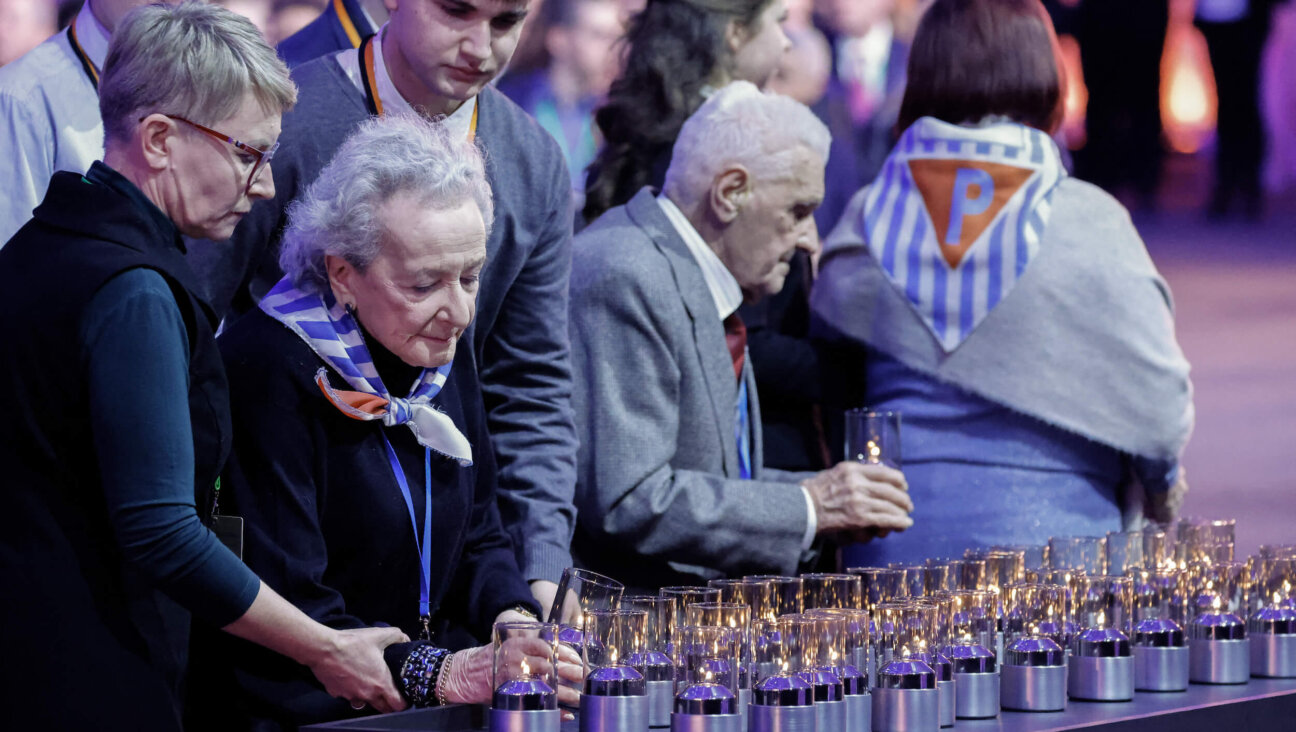Justice Delayed and Denied to Victims of Argentina Jewish Center Terror Bombing

Image by Getty Images
A powerful bomb destroyed the seven-story building in downtown Buenos Aires 19 years ago this week. Amidst the rubble of the Argentine Israelite Mutual Aid Association (AMIA) — the main Argentine Jewish organization — were 85 dead, Jews and non-Jews ranging in age from 18 to 73. Another 300 were injured.
The country’s top political leaders called the bombing an assault on Argentina. They vowed to apprehend and bring to justice those responsible. For Jews worldwide, this deadliest terror attack on a Jewish target outside of Israel since World War II was an omen of more terrorism to come, much of it coming from an Iran determined to extend the global reach of its extreme Islamist ideology.
Justice has been denied since July 18, 1994. The AMIA bombing investigation ran into problems from the start, and neither the perpetrators inside the country nor the masterminds abroad have been caught. Despite promises by President Cristina Fernandez de Kirchner, and her predecessor and late husband, President Nestor Kirchner, only a few suspects have been identified, none arrested.
The only concrete progress has been achieved by AMIA Special Prosecutor Alberto Nisman. Appointed by the government in 2005, Nisman has courageously, tenaciously, and almost single-handedly sought to expose the truth about the AMIA bombing.
Despite many obstacles, including some placed by the Argentine government, he has gone over every available piece of evidence and concludes unequivocally that Iranian officials were culpable. In 2008, Interpol, on the basis of Nisman’s findings, issued “red notices” against five Iranian officials, one of whom is the current defense minister. A sixth “red notice” names a Hezbollah operative in Lebanon.
For years, both Presidents Kirchner appeared before the UN General Assembly urging Iran to trust the impartiality of the Argentine judiciary and extradite the five officials for questioning. Iran, proclaiming its innocence, ignored these pleas. Internationally, only the U.S. government vocally supported Argentina’s quest for justice.
Then, in early 2013, Argentina undermined its own proclaimed determination to pursue justice. President Cristina Kirchner signed a memorandum of understanding with Iran to establish a joint “truth commission” that would investigate the AMIA bombing. While Argentina’s legislature quickly approved the agreement, Iran’s parliament has not yet acted. If the “truth commission” agreement is implemented, any questioning of accused Iranians will take place in Tehran, dooming any chance of resolving the AMIA case.
Inexplicably, Argentina has also prevented Nisman from traveling to Washington this month to appear before the U.S. Congress, where he was scheduled to discuss his recent report on Iran’s terror network in the Western Hemisphere. “The AMIA bombing did not constitute an isolated event,” Nisman wrote in the 500-page report. “It has to be investigated and understood as part of a larger effort by Iran to infiltrate Latin America.”
Nisman detailed how Tehran has methodically placed terror operatives in several countries, using Iranian embassies, local mosques and front companies connected with the Iranian Revolutionary Guards to form “intelligence structures” that can strike when needed.
However, Iran’s determined efforts to extend its outreach in Latin America may be slowing down. A U.S. State Department report delivered to Congress last month concluded that Iranian influence in Latin America and the Caribbean is waning due to effective U.S. diplomacy, the growing strength of U.S. allies, international nonproliferation efforts, a strong sanctions policy and Iran’s mishandling of its foreign relations.
At the same time, the State Department report notes that Iran’s push into Latin America remains an ongoing concern, pointing out that Iran has “serially failed to live up to its international obligations and is a State Sponsor of Terrorism.”
Nearly 20 years after Iran and its terrorist allies got away with mass murder in Buenos Aires, resolving the AMIA case remains an urgent task.
Dina Siegel Vann is director of the American Jewish Committee’s Institute on Latino and Latin American Affairs.
A message from our Publisher & CEO Rachel Fishman Feddersen

I hope you appreciated this article. Before you go, I’d like to ask you to please support the Forward’s award-winning, nonprofit journalism so that we can be prepared for whatever news 2025 brings.
At a time when other newsrooms are closing or cutting back, the Forward has removed its paywall and invested additional resources to report on the ground from Israel and around the U.S. on the impact of the war, rising antisemitism and polarized discourse.
Readers like you make it all possible. Support our work by becoming a Forward Member and connect with our journalism and your community.
— Rachel Fishman Feddersen, Publisher and CEO























